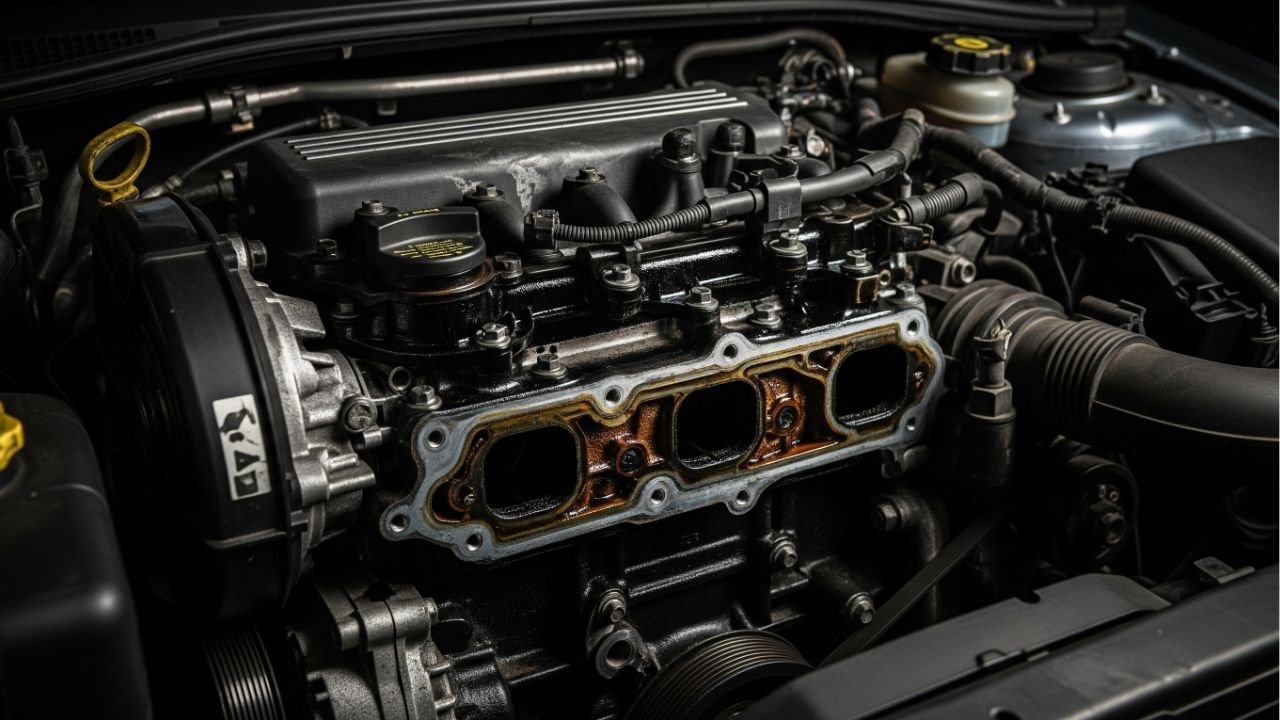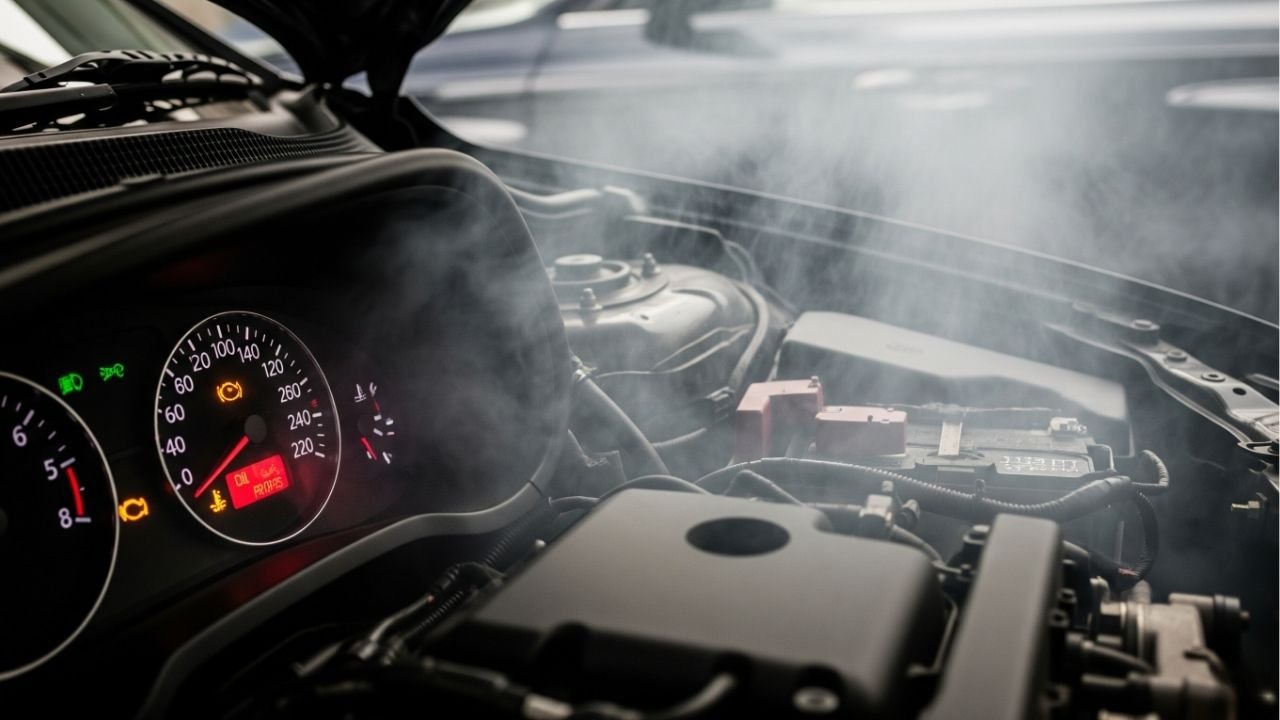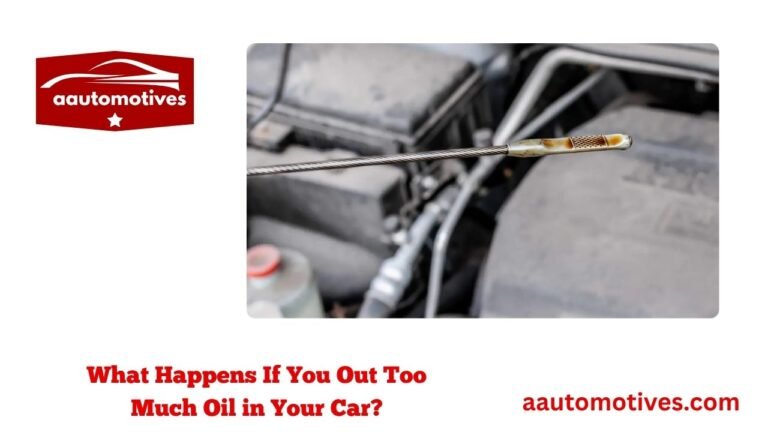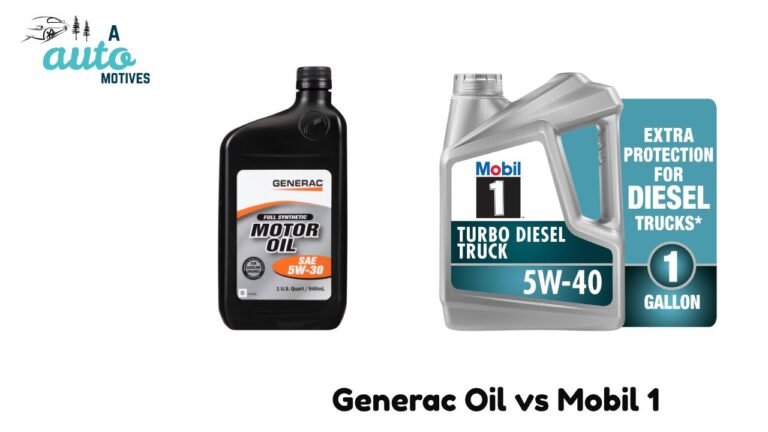What If Your Car Has No Oil? Shocking Truth

Imagine running a marathon without drinking water. That’s exactly how your car feels with no oil. Most people don’t realize how vital engine oil is—until it’s too late. You hop in your car, turn the key, and expect it to run smoothly. But what if one day, it doesn’t? What if it seizes up or refuses to start? Worse yet, what if your car has no oil?
This isn’t just a mechanical issue. It’s a time bomb ticking under your hood. A dry engine can lead to thousands in repair costs, or even total engine failure. Sounds scary? It should.
But here’s the good news—understanding the signs, consequences, and solutions can save your engine and your wallet. So grab a cup of tea (or coffee), and let’s take a journey through the real, raw truth of driving without oil. Personal stories, expert advice, and real-world examples await.
When the Lifeline Is Gone: What Happens If Your Car Has No Oil
Let’s not sugarcoat it—if your car has no oil, it’s a ticking disaster. Engine oil is the lifeblood of your car’s engine. It lubricates moving parts, reduces friction, carries away heat, and prevents metal components from grinding themselves into uselessness.
Without it? Your engine components get hotter, metal rubs on metal, and soon, the engine may completely seize. Think of it like a blender running without any liquid inside—eventually, it burns out.
Consequences of no oil in your car include:
-
Complete engine failure
-
Damaged pistons and crankshaft
-
Overheating leading to fire hazards
-
Broken seals and gaskets
-
Expensive repair or replacement
I once had a friend, Tareq, who ignored his oil light for a week. His engine literally locked up on the highway. The damage? A whopping $4,000. Moral of the story: never drive without oil.
Common Signs That Your Car Is Out of Oil

-
Oil Warning Light: The most obvious sign. Don’t ignore it.
-
Knocking or Ticking Noise: Dry parts tapping and banging together.
-
Burning Smell: Overheated parts may give off a hot, smoky scent.
-
Overheating Engine: No oil means no heat dispersion.
-
Performance Drop: Car feels sluggish or jerky.
-
Smoke From Exhaust: A bad sign—it could indicate internal damage.
I always keep my eyes glued to the dashboard. That little red oil can light? It once saved my engine. If your car has no oil, one or more of these signs will likely show up fast.
Why Oil Disappears: Where Did It Go?
Not all missing oil stories start with leaks. Sometimes, your engine “eats” it. Understanding why your car has no oil is just as important as fixing it.
Here are some common reasons:
| Cause | Description |
|---|---|
| Oil Leaks | Gaskets, seals, or drain plug can leak oil slowly over time. |
| Burning Oil | Worn piston rings or valves cause oil to burn in the combustion chamber. |
| Neglected Oil Changes | Old oil turns into sludge and can’t circulate. |
| Faulty Oil Filter | A bad filter might fail to trap debris, letting it clog the system. |
| Cracked Engine Block | Rare but serious; leads to internal loss of oil. |
A cousin of mine once poured oil without tightening the drain plug. It leaked overnight. The next day? No oil. A $2 mistake turned into a $2,500 regret.
How Long Can a Car Run Without Oil? (Spoiler: Not Long)
You might think, “Can I drive just a few miles without oil?” That’s like asking if you can hold your breath while sprinting.
In most modern engines, if your car has no oil, it can run for less than 30 minutes—often less than 10 minutes—before permanent damage occurs. Some engines seize up after just a few minutes!
The engine temperature rises rapidly. Pistons overheat. Friction builds. The metal expands. Then, boom—the engine locks up. That’s game over.
Even if your car still runs, microscopic damage starts immediately and grows. Every minute without oil is shaving years off your engine’s life.
Immediate Actions to Take If Your Car Has No Oil
So, you’ve found yourself in this dreaded scenario. Maybe you forgot to top off. Maybe a leak surprised you. What should you do if your car has no oil?
Here’s what you must do—immediately:
-
Turn Off the Engine: Stop driving right away. Pull over safely.
-
Let It Cool: Don’t open the hood right away. Let the engine rest 15–30 minutes.
-
Check the Dipstick: After cooling, pull the dipstick to confirm the oil level.
-
Add Oil If Available: If you’re lucky to have oil, add it up to the safe level.
-
Call a Tow Truck: If oil isn’t available or damage is suspected, don’t risk driving.
-
Check for Leaks: Look under the car for wet spots or drips.
Never “just drive a little more” without oil. It’s like sprinting on a broken leg. A $30 tow can save you from a $5,000 rebuild.
The High Cost of Ignoring the Problem
If you’ve been ignoring oil changes or signs of oil loss, here’s what it might cost you:
| Damage Type | Estimated Cost |
|---|---|
| Replacing Engine Oil | $30 – $70 |
| Fixing Oil Leak | $150 – $1,200 |
| Engine Rebuild | $2,000 – $4,000 |
| Engine Replacement | $4,000 – $10,000+ |
Let that sink in. The difference between a $50 oil change and a $5,000 replacement is just a decision away. And if you’re driving a luxury vehicle? Even worse.
Once, I spoke to a BMW owner at a service center. His car seized due to low oil and cost him more than his down payment to fix it.
How to Prevent This Nightmare From Happening
Here’s where we shift from fear to empowerment. You can stop this before it begins. Even if your car has no oil today, tomorrow can be different.
Follow these simple steps:
-
Check Oil Every 1,000 Miles: Pop the hood and use the dipstick.
-
Stick to Oil Change Schedules: Usually every 3,000 to 7,500 miles.
-
Use Quality Oil and Filter: Don’t cheap out on what protects your engine.
-
Fix Small Leaks Fast: Don’t wait until they become major ones.
-
Pay Attention to Warning Lights: That light on your dash isn’t just for show.
-
Keep Spare Oil in Trunk: Just like a spare tire—just in case.
Taking 5 minutes to check oil every month is like brushing your teeth. Skip it, and you’ll pay later—with money and regret.
Choosing the Right Oil If Your Car Has Run Dry
Once you realize your car has no oil, the first instinct might be to pour in whatever’s available. But oil isn’t “one size fits all.” Picking the wrong oil could make things worse, not better.
Let’s break it down:
| Type of Oil | Best For | Viscosity Example |
|---|---|---|
| Conventional | Older engines, budget-friendly cars | 10W-30 |
| Synthetic | Modern cars, turbo engines, cold climates | 0W-20, 5W-30 |
| High-Mileage | Vehicles over 75,000 miles | 10W-40, 5W-30 |
| Blend Oil | Mix of synthetic & conventional oils | 5W-30 |
Tip: Always check your car’s manual. If your engine is dry and you need to refill fast, synthetic oil is usually safer for emergency use—it flows faster, protects better under stress, and handles high temps well.
Real Talk: Personal Story of Driving with No Oil
Let me tell you about something that happened to me personally.
I was once driving through the hilly roads of Chittagong during Eid vacation. My car had been fine the night before. But the next morning, I heard a light ticking noise from the engine. I thought, “Probably nothing big—it’ll go away.”
But by the time I reached the highway, that ticking became a metallic clatter. I pulled over, popped the hood, and realized—my car had no oil. The dipstick was bone dry. My heart sank.
A nearby mechanic confirmed it. An old oil filter had burst, leaking everything out overnight. If I had gone just 10 more kilometers, the engine might’ve seized. Luckily, I added oil on the spot and avoided a disaster.
The lesson? Trust your gut. Listen to your engine. That ticking might be its way of crying for help.
Is It Ever Safe to Drive With No Oil?
Let’s be clear: No. Never. Not even for one kilometer.
Driving without oil is like playing Russian roulette with your engine. Even if the car moves, internal components are screaming in pain. Friction increases. Heat builds. Metal shavings start to float in your oil passages (if any oil is left), turning the engine’s inside into a disaster zone.
Some might say, “I just need to reach the mechanic nearby.” That logic can cost you more than a tow truck ever will.
Best practice:
-
Add oil if available.
-
If not, tow the car. Don’t risk driving even a short distance.
Remember: The damage is invisible at first. But months later, you’ll wonder why your engine is knocking or your fuel mileage dropped.
Does Insurance Cover Engine Damage from No Oil?
In most cases? No.
Standard car insurance doesn’t cover mechanical failure caused by neglect. If you’ve skipped oil changes or ignored warning signs, the damage is usually your responsibility.
However, here are a few exceptions:
-
Mechanical Breakdown Insurance (MBI): Some extended warranties or policies cover internal engine damage.
-
Manufacturer Warranty: If your car is under factory warranty and failure was due to a manufacturing defect (e.g., faulty gasket), you may be covered.
-
Comprehensive Coverage: Covers external causes (like vandalism or accidents), not neglect.
So, if your car has no oil because you forgot to top it off? It’s likely coming out of your own pocket.
Frequently Asked Questions (FAQs)
Q1: Can I just add oil without draining the old one?
Yes, in an emergency. But you should still change it properly soon. Mixing old dirty oil with new isn’t ideal for long-term engine health.
Q2: Will the engine start again after seizing due to no oil?
Sometimes, yes—but that doesn’t mean it’s healthy. Once it seizes, internal damage has already occurred. A mechanic should inspect it.
Q3: Can low oil cause the car to stall?
Yes. Lack of lubrication and rising engine temps can cause the engine to shut down unexpectedly. That’s dangerous and unpredictable.
Q4: How often should I check my oil?
At least once a month, and before long road trips. Older cars may need checks more frequently, especially those burning or leaking oil.
Q5: What does the oil light really mean?
It means low oil pressure. Either you’re running out of oil, or the pump isn’t circulating it properly. Either way, stop the car and investigate.
Final Thoughts: Treat Your Oil Like a Health Check
Your engine doesn’t ask for much—just clean fuel, regular checkups, and oil. Yet too many drivers learn the hard way that if your car has no oil, nothing else really matters.
It’s a silent killer. You won’t always hear a loud bang or see smoke. Sometimes, it quietly ruins your engine while you’re still jamming to your favorite playlist.
Let this be your reminder:
-
Keep oil in your trunk.
-
Check it monthly.
-
Respect the warning lights.
-
Don’t be afraid to get your hands dirty with a dipstick check.
Because in the end, that sticky golden liquid is the only thing standing between smooth rides and an expensive trip to the junkyard.






